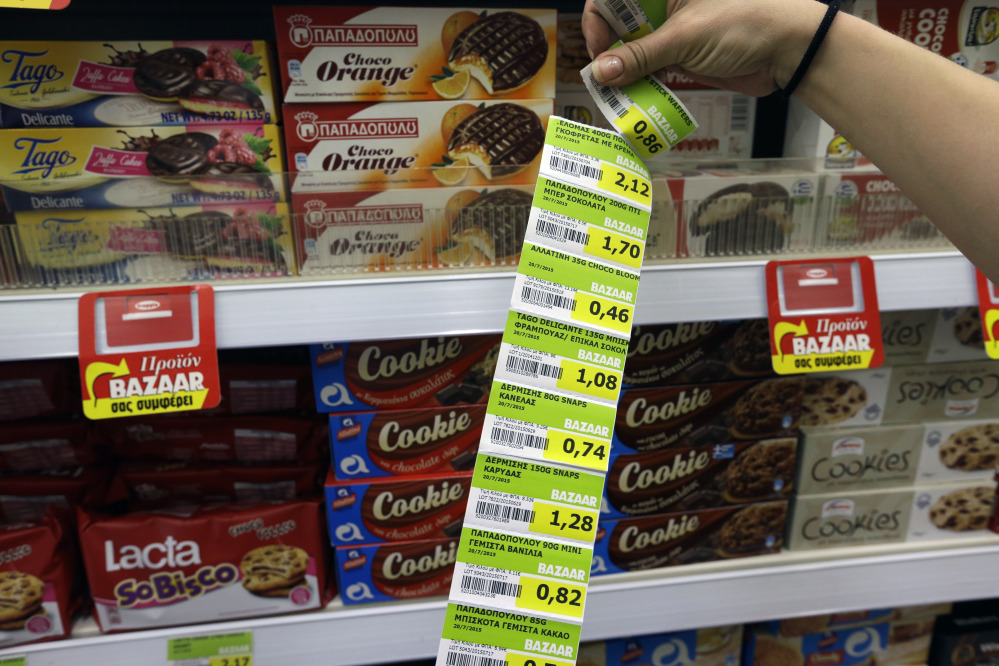ATHENS, Greece — Greek banks reopened Monday for the first time in three weeks, but strict limits on cash withdrawals and higher taxes on everything from coffee to diapers meant the economic outlook for the recession-battered country was far from back to normal.
There were hopeful developments: The cash-strapped nation got a short-term loan from European creditors to pay more than 6 billion euros, or about $6.5 billion, owed to the International Monetary Fund and the European Central Bank. Non-payment of either would have derailed Greece’s latest bailout request.
But for most Greeks, already buffeted by six years of recession, Monday was all about rising prices as tax hikes demanded by creditors took effect.
Dimitris Chronis, who has run a small kebab shop in central Athens for 20 years, said the higher tax rates could push his business over the edge.
“I can’t put up my prices because I’ll have no customers at all,” lamented Chronis, who said sales have slid by around 80 percent since banking restrictions were imposed June 29.
“We used to deliver to offices nearby, but most of them have closed. People would order a lot and buy food for their colleagues on special occasions. That era is over.”
There are few parts of the Greek economy left untouched by the steep increase in the sales tax from 13 to 23 percent. The new rates have been imposed on basic goods, from cooking oil to condoms, as well as to popular services, such as taxi rides, eating out at restaurants and ferry transport to the Greek islands.
The tax hikes are part of a package of austerity measures that also include pension cuts and other reforms that the Greek government had to introduce for negotiations to begin on a crucial third bailout.
In response to last week’s parliamentary vote backing the austerity measures, the ECB raised the amount of liquidity assistance on offer to Greek banks, paving the way for them to reopen Monday. But strict controls on cash flows, including a ban on check-cashing and payments abroad as well as limits on cash withdrawals are in effect.
The European Union also sent a three-month loan, enabling the government to repay a debt to the ECB and the IMF.
Send questions/comments to the editors.



Success. Please wait for the page to reload. If the page does not reload within 5 seconds, please refresh the page.
Enter your email and password to access comments.
Hi, to comment on stories you must . This profile is in addition to your subscription and website login.
Already have a commenting profile? .
Invalid username/password.
Please check your email to confirm and complete your registration.
Only subscribers are eligible to post comments. Please subscribe or login first for digital access. Here’s why.
Use the form below to reset your password. When you've submitted your account email, we will send an email with a reset code.